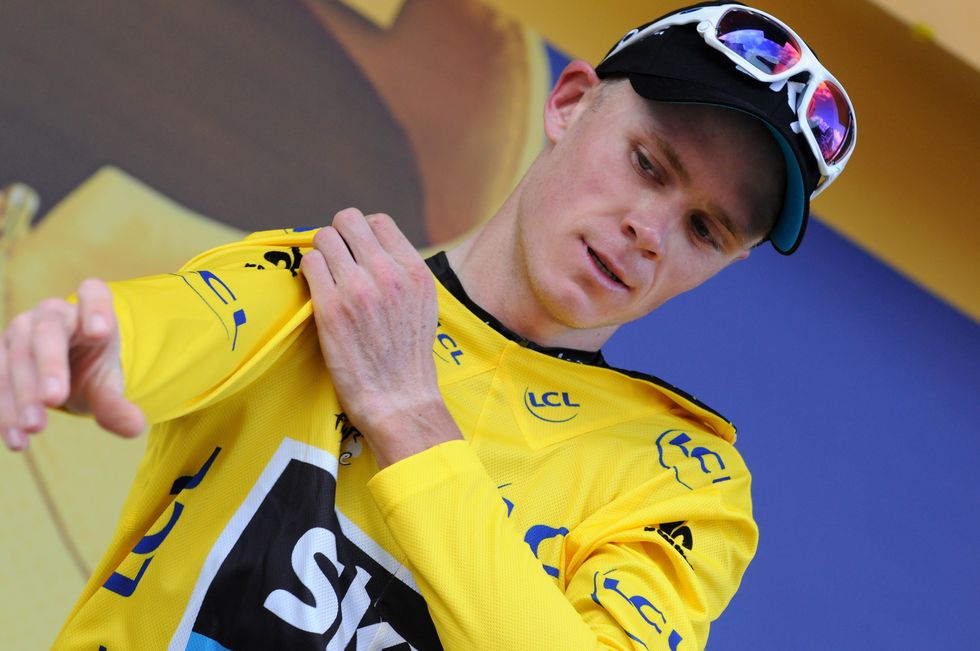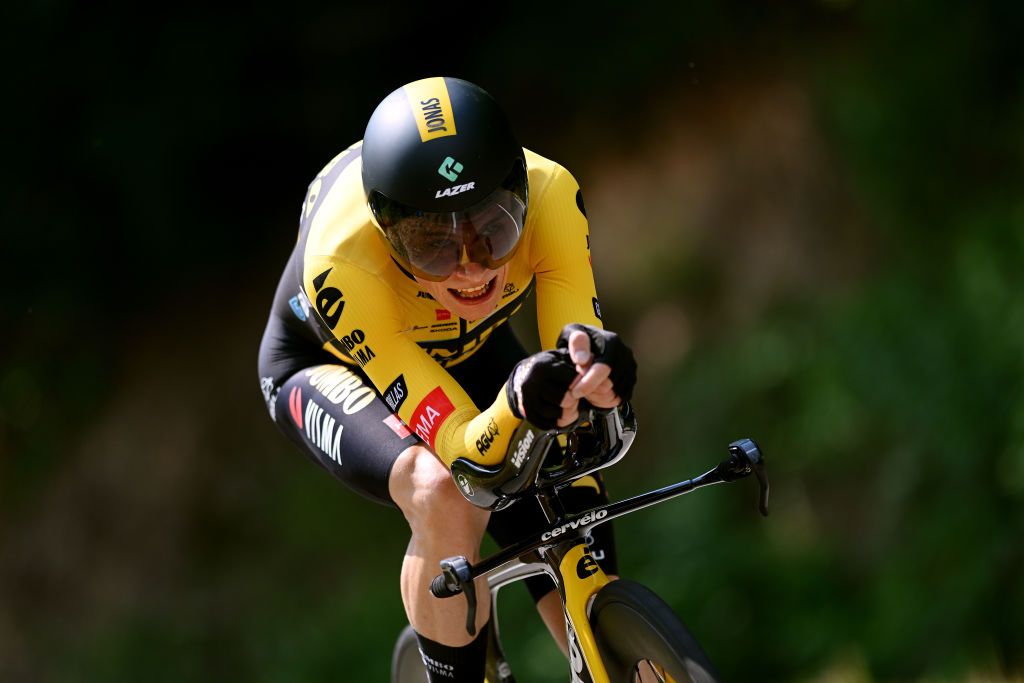Famous Champions in Tour de France History
While we anticipate who will rise to glory this year, let's look at the legends who have already cemented their place in Tour history.
We’re just a few days away from the start of the 111th edition of the Tour de France, La Grand Boucle, arguably the biggest bike race on Earth. Let’s talk about some of the most famous (and at least one infamous) winners in the history of the Tour de France, men whose names and exploits have become synonymous with Le Tour.
The Classic Era
Maurice Garin – 1903
Any list of Tour de France winners has to include Garin for no other reason than the Frenchman won the first-ever. In 1903, Garin won the six-stage Tour, covering its 2,428 km in under ninety-five hours. But don’t let those six stages fool you, as the race averaged over 400 km each day. Garin defended his title the following year, only to be stripped of the win following allegations that he was transported by a car or a horse at some point during the race.
Phillipe Thys – 1913, 1914, 1920
Thys’s first Tour victory wasn’t without issue, as the Belgian won the 1913 race despite suffering a broken fork. He was penalized ten minutes after it was discovered he repaired the fork at a bicycle shop, yet still won the race by nine minutes. He repeated this in 1914, again overcoming a major penalty. This time, he was hit with a thirty-minute deduction for an unauthorised wheel change. As the race was not run between 1915 and 1918 due to the First World War, Thys had to wait until 1920 for his third and final Tour victory. Following that win, Tour de France founder Henri Desgrange wrote of Thys, “France is not unaware that, without the war, the crack rider from Anderlecht would be celebrating not his third Tour, but his fifth or sixth.”
Gino Bartali – 1938, 1948
Though Coppi was perhaps better known for his trio of wins at his native Giro d’Italia (which included seven King of the Mountains wins), he was twice the winner of the Tour de France. After withdrawing from his first Tour in 1937, where he wore the leader’s jersey for a time, Bartali returned the following year and won, immediately becoming an icon in Italy. A decade later, Bartali returned to the Tour, leaving a nation of people to choose between him and his countryman Fausto Coppi. Bartali won seven stages en route to both the yellow jersey and the KOM classification. Years later, it was discovered that Bartali secretly used his training rides to shuttle documents back and forth between Florence and Assisi in order to aid Jews who were being persecuted by the Nazis.
The Golden Era

Fausto Coppi – 1949, 1952
Fausto Coppi kicked off what many call cycling’s Golden Age and is perhaps most well-known for the fact that he won the Giro/Tour double twice. Coppi was the first to achieve the double. Only eight other riders have achieved the result. Coppi’s early career was interrupted due to the Second World War, leaving generations of pundits to wonder what he might have done in the early 1940s. However, he did win five Giros d’Italia and scores of classics in addition to his pair of Tours. He frequently clashed with his biggest rival, Gino Bartali, dividing a nation of fans down into “Coppiani” and “Bartaliani.”
Jacques Anquetil – 1957, 1961, 1962, 1963, 1964
Over the course of eight years, Jacques Anquetil won the race five times. His first victory came on debut, just months after he was discharged from military service. Following a rocky few years spent chasing an elusive Giro/Tour double, Anquetil returned to the top of the podium in 1961. He repeated as Tour champion the following year doubled up the next two years, with the Tour and the Vuelta a España in 1963 and the Tour and the Giro in 1964.

Eddy Merckx – 1969, 1970, 1971, 1972, 1974
There might be no more famous bicycle racer than Eddy Merckx. The Belgian legend remains forty-five years after his retirement, as the name to which everyone else is compared. “Is he the next Mercxk?” is asked every few years. And to this point, everyone has fallen short of the mark. And though he’s tied with three other riders on this list with five Tours de France on his resume, his name rises above all due in large part to the rest of his palmarés, which includes victories at virtually every other race of import. And for all of his yellow jerseys, he’s equally known for his thirty-four stage wins at the Tour, matched only by Mark Cavendish, and six stage wins clear of the next closest racers (Bernard Hinault with twenty-eight).
Bernard Hinault – 1978, 1979, 1981, 1982, 1985
In Mercxk’s final year, his heir apparent was coronated when Frenchman Bernard Hinault won his first Tour de France. He won again the following year and was leading the race in 1980, expected by many to three-peat. However, “The Badger” was forced to abandon due to a knee injury. He came back the following year and the year after that, again going back-to-back. His final Tour victory came in 1985 thanks in large part to the work of his teammate, a young Greg LeMond.
The New Era

Greg LeMond – 1986, 1989, 1990
Greg LeMond finished his first-ever Tour de France in third place. The following year, he took one step further on the podium, finishing second after he spent the race working in service of his La Vie Claire team leader Hinault. The year after that, in 1986, the reins came off, and LeMond entered Le Tour as La Vie Claire’s co-leader. He won that race, besting Hinault by just over three minutes. After being shot in a hunting accident, LeMond missed the next two Tours de France, only to return in 1989, winning what many call the greatest Tour of all time. LeMond entered the race with little hype or expectation. He hoped for a top-twenty finish. However, over the course of the Tour, LeMond’s strength and position grew as he battled back and forth with his French rival, Laurent Fignon. LeMond headed into the race’s final stage, a time trial fifty seconds short of Fignon. He finished it eight seconds clear of the Frenchman, winning the race in what remains the smallest margin of victory ever. Later that year, he won his second World Championship (his first came in 1983) and followed up his performance with a repeat Tour de France victory the next summer.
Miguel Indurain – 1991, 1992, 1993, 1994, 1995
There was a time when it was presumed that no one would top Eddy Mercxk’s record of four consecutive Tour de France wins (1969-1972). But then came Miguel Indurain, who unseated LeMond in 1991 (LeMond finished second), snatching his first of a then-record five straight Tour de France victories. In addition to his stretch of Tour wins, Indurain twice doubled up, winning the Tour and the Giro in 1992 and 1993.
Marco Pantani – 1998
Unlike most of the others on this list, Marco Pantani’s renown doesn’t come from repeated success at the Tour de France. In fact, Il Pirata only won the yellow jersey once, in 1998 (after a pair of third-place finishes in 1994 and 1997). However, that year, he doubled up, winning his home race, the Giro d’Italia. Much of Marco Pantani’s legacy is couched in legend and lore, owing in large part to his elusiveness while racing and untimely death at just thirty-four years old.
The Modern Era
Lance Armstrong – 1999, 2000, 2001, 2002, 2003, 2004, 2005 (all vacated)
Lance Armstrong had all seven of his Tour de France titles stripped and received a lifetime ban from all sports that follow the World Anti-Doping Code.

Alberto Contador – 2007, 2009
Alberto Contador is one of just seven riders to have won all three Grand Tours more than once. He’s also a four-time winner of the Vélo d’Or, the only person to win the award for the year’s best rider four times. He was the first man in the twenty-first century not named Lance Armstrong to win the Tour de France. However, after being implicated in a doping scandal (he was later cleared), Contador didn’t even have a pro contract going into the 2007 season. He went on to win that race by just twenty-three seconds over Cadel Evans (who would go on to win the Tour in 2011). Two years later, he notched his second Tour victory, beating Andy Schleck by just over four minutes.

Bradley Wiggins – 2012
Like Marco Pantani, Bradley Wiggins has just one Tour de France victory. That win came in 2012 after the British track champion fully committed to road racing. Wiggo won over many European fans after a fan threw carpet tacks onto the course during stage 14. Unaffected, Wiggins commanded the peloton to slow down and wait for his competitors—namely Cadel Evans, who suffered a puncture—to catch up. Since his 2012 victory, Wiggins has remained in the spotlight as a pundit, a rower, a published author, and lately, an advocate for mental health awareness.
The Contemporary Era

Chris Froome – 2013, 2015, 2016, 2017
After displaying strong form as a super domestique during the 2012 season, riding in support of Bradley Wiggins, Froome entered 2013 with massive expectations. He took on the leader’s role in some early-season races and headed into the Tour de France as the heavy favourite, fulfilling bets with a four-plus-minute win over Nairo Quintana. The following year, he crashed out of the race on stage 5. However, Froome returned with a 2015 victory, the first in three consecutive Tour de France wins.

Tadej Pogačar – 2020, 2021
In his short career, Tadej Pogačar has won just about everything there is to win. And he’s often done as much with aplomb and style, with many experts saying his versatility, pure strength, and insatiable will win make Pogačar the closest thing we’ve seen to Eddy Merckx since the real thing. His first Tour de France victory came in 2020 after he snatched the win from fellow Slovenian Primož Roglič. It was there that he won on the race’s penultimate stage, going from fifty seconds down on Roglič to one minute up in the span of one final climb. The following year, he defended with relative ease, beating then-newcomer Jonas Vingegaard by more than five minutes.

Jonas Vingegaard – 2022, 2023
Jonas Vingegaard’s backstory is already the stuff of legend. While working in a Danish fish factory, he was discovered after posting a ride to Strava. Within a few years, he won his first Tour de France, beating the seemingly invincible Tadej Pogačar. The following year, he went head-to-head with Tadej, winning his second-straight Tour on the back of one of the greatest time trials in the history of the Tour (and arguably ever). He then put the final nail into the coffin by doing what was then unthinkable: cracking Tadej Pogačar up a brutal climb.
READ MORE ON: 2024 Tour de France cycling legends pro racing



